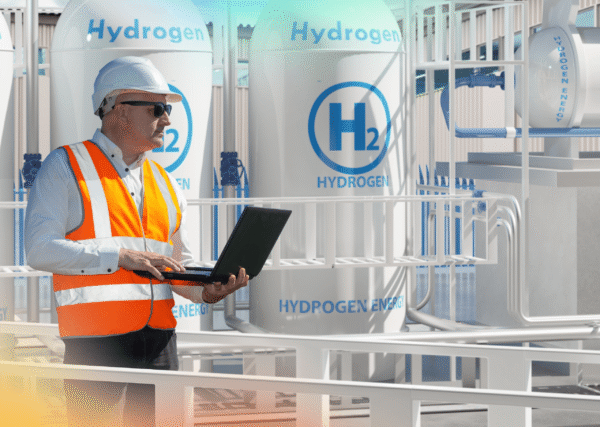
GSM5310 hydrogen leak detection sensor module & FLS310 thermal conductivity sensor
Hydrogen is Full of Promise — and Risk
Hydrogen is light. Clean. Abundant. And vital to the future of energy. But it’s also hard to handle.
- It leaks easily.
- You can’t see or smell it.
- It’s highly flammable — with a wide explosive range.
- It behaves very differently in confined spaces vs open air.
As the hydrogen economy grows, so do the risks…unless we address them head-on.
The GSM5310 Hydrogen Leak Detection Sensor Module is designed for leakage detection in hydrogen applications.
- Uses Flusso FLS310 thermal conductivity sensor
- Accuracy ± max (1000 ppm, 10% m.v.) across a temperature range of -40 – 85 ºC and humidity range of 0 – 40 g/m3
- Fast start up (<1 s) and response time (<4 s)
- High selectivity to hydrogen in humid air
- Very high immunity to poisoning
- CAN interface
- EvalKit available from FMG
The GSM5310 is an example of possible modules based around the FLS310. The FLS310 thermal conductivity sensor is suitable for high-volume consumer and industrial applications. Main features are:
- CMOS MEMS thermal conductivity technology
- Contains membrane crack detection circuit
- Ultra-small surface mount package (3×3 mm)
- Fully compatible with SMD assembly processes
Flusso is open to collaborate towards the development of customised sensor modules with FLS310 at their core.
Click here to read Flusso’s article
This article explores the real-world challenges of hydrogen adoption and the critical role safety will play in making it viable at scale. It’s not just about using hydrogen. It’s about using it safely.



